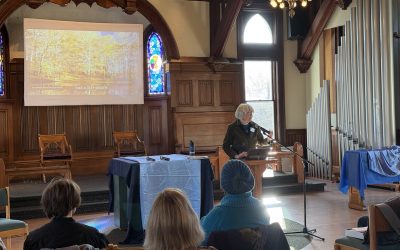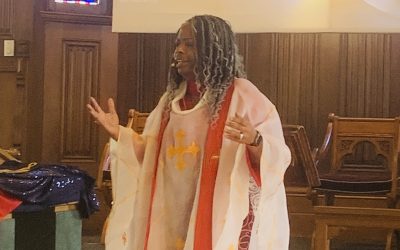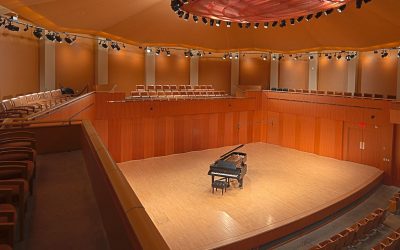Assistant Professor of Transnational Christianity and Gender Studies
March 2023 – Drew Theological School‘s Minjung Noh, assistant professor of transnational Christianity and gender studies, joined us for our Focus on Faculty series, where we highlight the many accomplishments, research, and scholarship of Drew’s incredible faculty members.
We sat down with Noh, who is also a Louisville Institute Postdoctoral Fellow, to discuss her experience teaching in Drew’s Partnership for Religion and Education in Prisons Program (PREP) program at East Jersey State Prison, and demystifying archival work in her History of Christianity in Korea course.
How has the relaunch of Drew’s PREP program been impactful for both inside and outside students—and for yourself?
Through the mentorship of Dr. Traci West [James W. Pearsall Professor of Christian Ethics and African American Studies], I began teaching at East Jersey State Prison in spring 2023. It is a master’s level course on Engaged Buddhism and Interfaith Dialogue, and the impact of introducing a non-western religious tradition and interpreting it to students’ contexts have already been fruitful.
For outside students who are in the Theological School’s Master of Divinity program, it is an important part of their curriculum to have interfaith competency and critical assessment of religious diversity in the contemporary global society. In addition, many of the outside students from Drew are international students who have begun to learn about the criminal justice system and restorative justice in the U.S. They are providing unique global perspectives in discussions and truly expanding their horizon of thought in the PREP program.
For the inside students, seeing the parallels and divergences of the Buddhist and Christian interpretation of suffering, ethics, and path to liberation challenges their previous assumptions of religion and its relationship to restorative justice. For example, it fosters resilient and out-of-the-box thinking for the students who seek to address social issues when we discuss the Buddhist response to the Vietnam War, the atrocity of Khmer Rouge in Cambodia, and recent Black Lives Matter movement in the U.S. For myself, as an international woman scholar of Korean origin, I am stepping out of my comfort zone and challenging myself as an educator. I have actively used instructional technology in classrooms, but the PREP teaching relies entirely on the traditional mode of teaching: blackboard, handwritten notes, books, and the discussions. I am pleasantly surprised at the fact the tech-free classrooms are effective and provide more focused means to achieve the learning goals. The inside and outside students, I find, all have a genuine thirst for the intellectual challenge and pursuit of social and restorative justice, which brought me the pure joy of teaching.
You engage Drew’s United Methodist Archives and History Center to make archival sources accessible for your students. How does this inform your teaching?
My History of Christianity in Korea course cannot be separated from the history of Drew Theological School and United Methodist Archives. This is because of the first Methodist missionary to Korea, Henry Appenzeller. He was a Drew graduate and had a great impact on Korean Methodist history since he arrived in Korea in 1886. The majority of students in my class are Korean or Korean Americans who have direct connection with the American Methodist missionaries or a part of the Korean diaspora embedded in the transnational network of Korean Christianity.
From this background, the students already have a lot of relevant stories to tell about the history of Korean Christianity. I am providing them access to historical data through reading historiography and the archival work, and introducing digital technology (Omeka). With these tools in their hands, I ask them to seek answers to a specific question: how do we narrate the history of Christianity in Korea in accessible, relevant, and meaningful ways for the Drew community, the public, the church, and ourselves? I expect them to be public historians of Korean Christianity, which has been shaping and informing the U.S.-Korea relations, transnational cultural history, and the Korean diaspora since the early 20th century. This goal starts from a small and realistic activity, which we are working on right now.
Recently, students and I visited Drew’s United Methodist Archives. With the help of our archivist, Alex Parrish, students chose a single artifact related to Korean Christian history. They will identify the context, narrate the journey of the artifact, and find the implication of the artifact. This small, manageable, and materiality-oriented assignment is intended to demystify archival work and process of writing historiography, so that they will feel much more comfortable producing the final web storytelling exhibition at the end of the semester.




